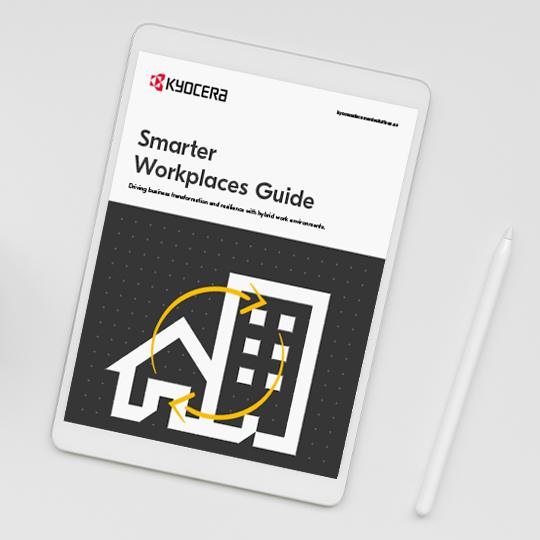
Once a visionary concept rather than a practical approach, the future of work has become the '“now” of work within just a few short months.
Confronted with a worldwide pandemic, millions of businesses across the globe had to shift the way they work drastically and suddenly. Some found it an easy transition to remote work, with flexibility and technology already built into the company culture. For others, the task was far more challenging. Organizations around the world continue to struggle with the implications of COVID-19 in the workplace, reactively solving challenges as they appear. However, now is the time to consider – what's next?
A new normal is emerging; the way we work has been forever changed. Businesses must now consider the shift to remote working will continue to evolve the workplace.
With 74 percent of companies planning to permanently shift to more remote work post-COVID-19, we will see businesses experimenting with new ways of operating that combine the benefits of co-located collaboration and innovation with the flexibility and productivity of remote work.
This involves cultivating an innovative hybrid working model that will empower employees to move seamlessly between co-located and remote work. It will also change the requirements of the actual physical space of the office, with the hybrid office serving as a “hub” rather than simply a place to do work.
Activity-based working (ABW) will continue to grow Pre-COVID-19, activity-based working offered a way for employees and employers to improve efficiency and productivity in the workplace. The nature of the ABW work style, where employees choose from a variety of settings according to the nature of what they are doing, raised concern in light of pandemic hygiene. An ABW office could still offer protection with a strict cleaning schedule regime.
A new normal is emerging; the way we work has been forever changed.
With remote working the new normal, there are also organizations that are encouraging employees back to the office. Organizations will need to ensure the health and safety of their employees, increasing the cleaning frequency of highly used common touch-points, like door handles, lift buttons and stair railings. Office spaces may start to include things like hygiene stations with hand sanitizer, wayfinding and signage to indicate safe routes around the office, increased automation in the form of sensor lighting and doors, and touch-free devices, such as mobile-friendly printers.
By using the right expertise and technology, these hybrid workplaces provide organizations with the resilience and scalability they need to thrive in a rapidly changing world.
Remote working and ABW are built around the tenets of flexibility and trust, allowing employees to choose when, where and how they work, as long as the work gets done. This represents a larger cultural shift that challenges the traditional way of thinking about work. In our new normal, work is becoming much more a thing you do rather than a place you go. As business leaders shift their focus to outcome over input, this will enable increased flexibility for employees to decide the when, where and how of their work.
Aside from boosting productivity, better work-life balance and a slew of other benefits, increased flexibility in the workplace also means the ability to reduce physical contact during the pandemic, including:
Create a productive hybrid work environment that is secure and resilient.
